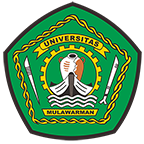ESG: Criteria 2.10

2.10 - Cyclical External Quality Assurance
Universitas Mulawarman (Unmul) demonstrates a strong institutional commitment to continuous quality improvement through established mechanisms of cyclical external quality assurance (EQA). The university adheres to the national framework Sistem Penjaminan Mutu Eksternal (SPME) as mandated by the Ministry of Education, Culture, Research, and Technology, particularly through SN Dikti regulations (Appendix 10.1A – SN Dikti Framework and SPME Guidelines). External evaluations are conducted every five years for study programs and institutional levels, validating academic and non-academic aspects based on the Lembaga Akreditasi Mandiri (LAM) and formerly BAN-PT standards. For teacher education programs, such as those under the Faculty of Teacher Training and Education (FKIP), Unmul now complies with the updated accreditation system conducted by LAMDIK, ensuring that field-specific standards are met (Appendix 10.1B – LAMDIK Accreditation Instruments and Policy Transition).
These evaluations not only affirm quality but also promote structured feedback loops that inform strategic development. The Quality Assurance Institute for Learning and Teaching (LPMPP) coordinates institutional accreditation readiness by facilitating internal evaluations and compiling required documentation, including quality policies, audit reports, and accreditation self-assessment reports (Appendix 10.1C – LPMPP Accreditation Readiness Report).
The connection between internal quality assurance (IQA) and EQA is systematic and well-integrated. IQA is led by faculty-level Quality Assurance Units (UPM) and coordinated by LPMPP, following structured internal reviews that serve as the basis for external submissions (Appendix 10.1D – Internal Self-Evaluation Flow and Committee Structure). The university follows a clear process—from periodic program evaluations to institutional audits—that culminates in external accreditation cycles. Internal evaluation findings are not only used for self-reflection but also strategically aligned with national standards and international frameworks such as ISO 9001, SN Dikti, and ACQUIN guidelines to ensure holistic institutional quality (Appendix 10.1E – ISO Compliance Report and ACQUIN Benchmarking Summary).
Several best practices highlight Unmul’s commitment to quality enhancement through EQA. For instance, FKIP’s recent re-accreditation process with LAMDIK led to revisions in curriculum mapping, a redefined learning outcome framework, and improvements in thesis supervision methods (Appendix 10.2A – FKIP Self-Evaluation and External Feedback Summary). Benchmarking with similar institutions nationally and regionally has allowed Unmul to refine its academic offerings, while ongoing feedback from accreditation panels has led to faculty development programs and assessment restructuring (Appendix 10.2B – Benchmarking Implementation and Curriculum Innovation Report).
Unmul’s EQA process is significantly strengthened through the active participation of industry partners and alumni. Industry Advisory Boards are regularly consulted to ensure academic programs reflect evolving labor market demands. Feedback from graduates is obtained via tracer studies, and alumni often serve as mentors or contributors to curriculum review processes (Appendix 10.2C – Tracer Study Report and Graduate Feedback Summary). Collaborative efforts between Unmul and its industry partners include internships, guest lecturing, skill-building workshops, and even co-designed certification modules integrated into the curriculum (Appendix 10.2D – Industry Collaboration Portfolio).
Looking ahead, Unmul aims to scale its EQA approach by pursuing additional international accreditations and aligning its systems more closely with global higher education best practices. Planned initiatives include integrating internationally recognized program standards, expanding English-medium academic information, and involving more international external reviewers (Appendix 10.3A – Strategic Plan for International Accreditation). The university also seeks to deepen its partnerships with industry to increase co-supervised research, dual-certification schemes, and continuous labor market relevance reviews (Appendix 10.3B – Industry Partnership Expansion Strategy).
In conclusion, Unmul’s external quality assurance mechanism reflects a structured, comprehensive, and forward-looking system that integrates national compliance, institutional self-assessment, stakeholder engagement, and international benchmarking. This alignment ensures Unmul's continuous progress toward academic excellence, global recognition, and professional relevance.
